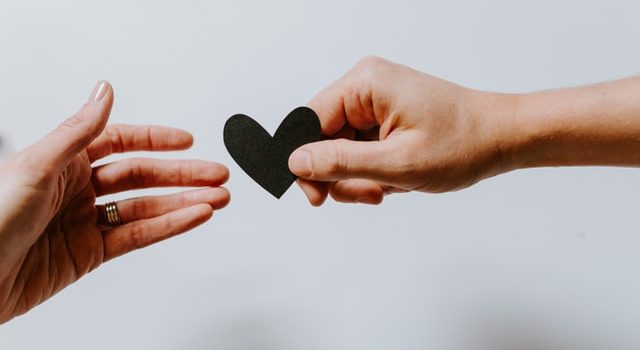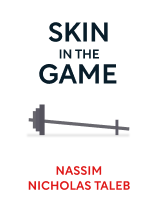

This article is an excerpt from the Shortform book guide to "Skin in the Game" by Nassim Nicholas Taleb. Shortform has the world's best summaries and analyses of books you should be reading.
Like this article? Sign up for a free trial here .
What drives virtuous behavior? How can readiness to take risks reflect one’s ability to do good deeds for others?
According to Nassim Taleb, having your skin in the game (the willingness to take risks and make sacrifices) is a necessary ingredient in any good deed imaginable. Without skin in the game, virtuous behavior that appears honorable on the surface is, at best, cheapened and ineffective, and at worst, inauthentic and malicious. In both cases, Taleb argues that the risks of skin in the game prove that you are what you claim to be.
In this article, we’ll explore Taleb’s notion that virtue without skin in the game is far less virtuous.
The Courage to Act Is Skin in the Game
Taleb defines courage as the tendency to put skin in the game—It’s the willingness to bear risk and make sacrifices.
In Taleb’s eyes, courage is the highest virtue because it’s required in order to do anything good. Anything done to benefit others requires some amount of risk that you must be prepared to bear.
Without skin in the game—without true courage—virtue is just empty words. Let’s take a closer look at how this happens.
Virtue Without Skin in the Game
All virtuous behavior requires some degree of risk and sacrifice—for example, the sacrifice of time and effort required to spend your weekends volunteering at soup kitchens.
For this reason, the only way for seemingly virtuous action to lack skin in the game is if it also benefits the one doing the virtuous action.
The return benefit takes your skin out of the Game by offering you a reward independent of the well-being of the person you’re trying to help. If a man only volunteers at soup kitchens as a means of picking up women, it obviously makes his work less virtuous.
Taleb judges the virtue of an action by the lack of reward you receive for doing it. The most virtuous actions are sacrifices made in private with no expectation of return. Publicizing your own virtue cheapens whatever good deed you’ve done. For example, anonymous donations to a good cause are truly virtuous, while widely publicized donations are less so.
| The Highest Virtue: Taleb Versus Kant This is another place where Taleb’s morality converges with that of philosopher Immanuel Kant. Similarly to Taleb, Kant narrows the definition of virtue. Kant asserts that true virtue is that which is done for no other motive than “good will”—it can’t get you anything in return, whether that be a salary from an employer, intrinsic satisfaction, or even reciprocal love from a significant other. Ideally, sacrifices must be made, and impulses must be restricted. In this sense, what Taleb calls “courage” and what Kant calls “good will” are the same thing—the willingness to sacrifice anything to live according to a moral law. Still, they don’t totally agree: Kant sees the “moral law” that you should obey as universal, objective, and able to be put into words, while Taleb sees it as unknowable. You could suggest, then, that Taleb sees sacrifice as an even more necessary component of virtue than Kant does, because he sees it as an added pressure to ensure intended positive consequences (skin in the game). Neither Taleb nor Kant assert that transactional virtue is necessarily a bad thing or immoral. But it’s not the truest, laudable, highest form of virtue, either. |
Taleb argues that people who make a living in “altruistic careers” outside of the free market—whose income comes from donations or, in the case of government workers, taxes—don’t have skin in the game. Examples include politicians, lobbyists and activists, and even salaried humanitarian workers. The virtue of these jobs is cheapened somewhat by the salary and other benefits they receive in return.
Additionally, without skin in the game, Taleb insists that activist and nonprofit organizations are more likely to do harm than for-profit businesses, even if their intentions are good. Since these workers’ income isn’t directly tied to how much value they create, it becomes impossible to tell how much good they’re really doing for society.
| Skin in the Game Problems in Foreign Aid Taleb points to the aid industry as an example of the detrimental effects of nonprofits without skin in the game. Zambia-born economist Dambisa Moyo agrees, noting several unintended consequences of foreign aid, including increasing poverty and stunted economic growth across Africa. Often, foreign aid supports corrupt and inefficient governments—in 2004, one expert asserted to a U.S. Senate committee that the aid-minded World Bank abetted the corruption of $100 billion of its funds intended for African development. Additionally, aid takes away the incentive for governments to improve the local economy—it takes 426 days to get a business license in Cameroon, making local enterprise much more difficult and foreign enterprise more attractive. Finally, donated goods can put local Africans out of business. American food sent to Africa earns money for American farmers, not African farmers. Foreign aid is certainly a noble cause, but if it’s not executed well, it can cause more harm than good. Taleb’s point is that, without skin in the game, nonprofits are unlikely to learn from their mistakes. |

———End of Preview———
Like what you just read? Read the rest of the world's best book summary and analysis of Nassim Nicholas Taleb's "Skin in the Game" at Shortform .
Here's what you'll find in our full Skin in the Game summary :
- Why having a vested interest is the single most important contributor to human progress
- How some institutions and industries were completely ruined by not being invested
- Why it's unethical for you to not have skin in the game






